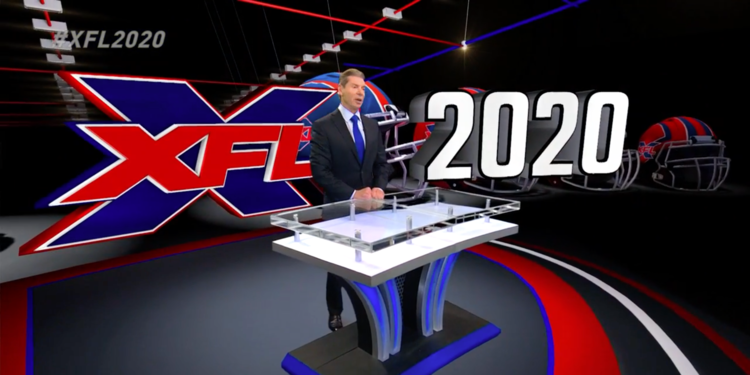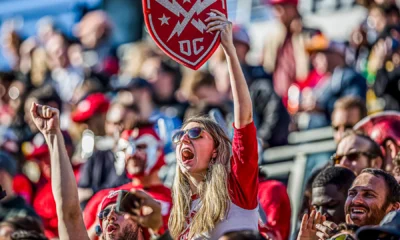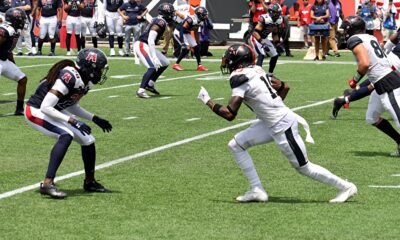
In late January, Vince McMahon announced that he will be resurrecting the XFL in 2020. During the announcement, McMahon also said and promised that he will not repeat the same mistakes the XFL had in 2001 that ultimately led to its demise, which could mean that he could be successful this time around.
Die-hard football fans didn’t take the XFL seriously the first time McMahon launched it. Wrestling fans weren’t really interested in its product and traditionalists didn’t like its marketing tactics. The lack of interest or the down-fall of ratings combined with the media partners and sponsors discontinuing their contract as well as multiple incidents, mishaps, and other failures which were all chronicled in an ESPN 30 for 30 This is the XFL documentary in 2017 forced McMahon to close shop just after one season.
During the XFL’s initial launch, McMahon said that he wanted to bring back the “old-fashioned smash-mouth football.” He felt that the NFL had become watered down with its many rules and regulations. So in response, McMahon eliminated the fair catch on kick and punt returns, enacted the “No Domes” policy, which meant every game was played outdoors regardless of the weather, and allowed quarterbacks to get hit when sliding (which is a 15-yard penalty in the NFL). McMahon also made sure penalties like unnecessary roughness and late hits were kept to a minimum.
With this new XFL set to launch in 2020, McMahon has vowed to make changes, and he could be successful if he is able to put them into place. The sports and media landscape has changed since 2001 thanks to more options for television viewing and social media being used as a strong marketing tool. Today’s sports fans are constantly seeking the next big thing, and the time could be right for competition as the NFL was forced to deal with turmoil on several fronts in 2017.
Back in 2001, McMahon had hoped that he could compete with the NFL with an alternative product that was co-promoted with WWE and marketed to the 18-34 year old male demographic. When McMahon initially launched the XFL back in 2001, many felt that it was rushed and that it should have waited until 2002. While the league did have a draft in 2000, the majority of XFL players were a collection of former NFL players, college players who were overlooked by the NFL, and players from minor leagues such as the Canadian Football League and Arena Football League, among others.
The XFL did, however, resurrect the careers of quarterback Tommy Maddox, kicker Jose Cortez, and the late Rashaan Salaam. It also launched the NFL career of Rod “He Hate Me” Smart. At that time, WWE was at the peak of its famed “Attitude Era” where sold out venues, insane television ratings, and record pay-per-view buys (before WWE Network) were common. McMahon tried use the success of WWE to propel the XFL.
Legendary WWE announcers Jim Ross, Jerry Lawler, and Jesse Ventura were among the broadcast teams. Wrestlers appeared at games throughout the 2001 season, and WWE promoted the league constantly during its weekly programs. McMahon also used multiple “gimmicks” to sell the league, such as eliminating the coin toss, getting rid of extra point kicks, taking cameras into the cheerleaders’ locker room, giving coaches a live microphone, and introducing the innovative “Skycam,” which is now used by both the NFL and NCAA.
In addition to benefiting from an evolved marketplace and appealing to disgruntled NFL fans, player development may also help the XFL’s rebirth. The NFL has lacked a developmental league since NFL Europe shut down in 2007. The XFL can fill that void if McMahon plays his cards right.
“It could be a place for some players to develop and gain confidence, thus improving their chances of making the NFL,” Sean Sierra, an affiliated host for SB Nation Radio and a former player and coach in his own right said.
With any sports league, money is always an issue. Players have frowned upon the CFL’s salaries, while the AFL’s financial struggles have always been well documented. Even the 2001 XFL had its struggles. So player compensation could help dictate the league’s future.
“If the XFL can compete with the salaries in the NFL that will change the landscape,” Jerry Riles, who has worked in sports media for nearly 30 years and currently hosts The Rewind Sports: 60 said.
Of course, the XFL won’t get anywhere without television coverage. Fortunately, with the expansion of cable and satellite networks and the various streaming services now available, McMahon shouldn’t have a hard time finding a network home.
“The multiple platforms that people consume their entertainment with will benefit the XFL because people can now watch on their phones, tablets or computers,” Sierra said. “They don’t need to be in front of a TV.”
With social media and advanced technology booming and rampant in our world today, the game may take off. Fans are growing tired of the NFL, and if the XFL markets their games properly, it can be a game changer,” Riles added.
McMahon always seems to make a business move at the right time. And if all goes well, 2020 could prove to be the XFL’s right time.
Unleash the Action: Sign up for XFL Insider and Fuel Your Passion for Football!

XFL Kickoff
XFL News Alerts
USFL and XFL Merger: A Deep Dive into the Historic Collaboration
Latest Podcast
-


XFL Podcast
/ 12 months agoXFL-USFL Merger Insights: Houston’s Future, Draft News, Player Movement – Ep. 216
Welcome to Episode 216 of the “XFL Week In Review,” your premier destination for...
By Mark Perry






